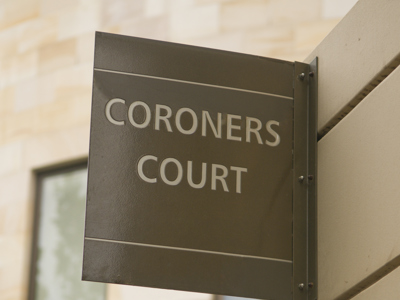
Multiple failings identified by Coroner during inquest into the death of six-year-old Maya Siek
No cause of death could be determined at the inquest of six-year-old Maya Siek at Queen Elizabeth the Queen Mother Hospital (QEQMH) in Margate, a coroner concluded.
Posted on 17 May 2024
Giving a narrative conclusion, Kent north east area Coroner Catherine Wood said there was no evidence that earlier treatment would have avoided Maya’s death on the balance of probability.
During a four-day inquest at mid Kent Coroners Court in Maidstone’ the court heard that there were a number of failings by the East Kent Hospitals University NHS Foundation Trust, including, but not limited to, failure to keep Maya in hospital when she was first admitted, failure to communicate the diagnosis of sepsis to staff and her parents, and a failure to adequately monitor her vitals, however there was not sufficient evidence for the coroner to reach causative findings on the balance of probabilities.

Maya, who lived in Margate, died on 21 December 2023 of a heart attack brought on by type A flu which also caused sepsis.
Her condition had triggered red flags for sepsis, and she was treated with intravenous antibiotics.
However, her high heart rate did not raise alarm bells before the strain on Maya’s heart led to cardiogenic shock, cardiac arrest and her sudden and unexpected death.
A serious incident report at QEQMH stressed that more learning about sepsis was needed for staff, particularly around high heart rate, tummy pain and hallucinations.
The court heard that on 19 December Maya’s mother Magda Wisniewska took her to QEQMH A&E department after she had been ill for 24 hours. She was prescribed antibiotics for tonsilitis and eventually sent home.
The following day Maya was so ill that Magda called an ambulance to take her daughter back to hospital. She was suffering tummy, leg, and back pain, was very cold to the touch, vomiting and found it difficult to go to the toilet.
Maya was admitted to the Rainbow children’s ward where a paediatrician reassured the family there was nothing to worry about. She was given fluids by IV drip. Later in the day it was decided that Maya should avoid eating or drinking and she was given a catheter.
She continued to complain of tummy pain and was unable to sleep. The following morning her mother voiced concerns that Maya’s breathing was different, she was pale, very cold to touch, still had tummy pain and was thirsty.
At 12.30pm a noisy heart check monitor was switched off to help Maya sleep, although she was still unable to sleep. In the afternoon finally she was able to go to the toilet, which her family hoped would ease her tummy pain.
Just after 2pm staff were trying unsuccessfully to take blood from Maya when suddenly she stopped breathing. Staff realised her heart had stopped beating and began to attempt resuscitation, which was not successful.
The inquest heard evidence from the clinicians involved in Maya’s care, as well as the independent consultant who wrote a serious incident report and the pathologist.
The inquest heard that they did not expect Maya’s sudden deterioration and cardiac arrest and the initial cause of death was unclear to them, although a postmortem examination found acute myocardial necrosis with type A flu a contributary factor.
The serious incident report found improvements had to be made in listening to parents and carers, clear communications and documentation of diagnosis, safe handover of patients between shifts, regular monitoring of children to ensure that early detection of any deterioration in their condition.
It also found that all staff should be aware of the importance of a persistent heart rate when considering if a patient has sepsis but has no fever.
A prevention of future deaths report will be considered by the Coroner after further evidence is submitted by the trust.
Magda and Maya’s stepfather Raj Bande are represented by Leigh Day clinical negligence solicitor Frankie Rhodes.
Magda Wisniewska said:
“We feel completely let down by the hospital that we trusted to take care of Maya. Even though my daughter did not appear to be getting better, I trusted the hospital staff because I thought that in hospital Maya must be safe. We were never told that Maya had sepsis or how seriously ill she was. The trust did not fully appreciate what was wrong with her and there were errors in treatment which meant that treatment was incomplete.
“Our lives have been ruined and our family will never be the same without her. I do not want this to happen to other families and I only hope Maya’s death wakes doctors up to the signs of sepsis that they must be alert to. Unfortunately, it is too late for our daughter, but I hope that any changes that are made help save the lives of other children.
“Our heart is with any other families who have lost children in the care of this trust and I want them to know that we are there for them if they need our assistance in any way.”
Leigh Day solicitor Frankie Rhodes said:
“It has been a privilege to support Raj and Magda throughout this lengthy inquest process and we are glad that matters have finally been concluded over 18 months after Maya’s death. Understandably, this has been very difficult for the family, who are completely devastated by the tragic loss of their beautiful daughter.
“We were pleased that the Coroner concluded that there may have been a system of errors by individuals and multiple failings were identified.
"The Coroner also acknowledged that medicine does not always have all the answers and there is a lack of clear understanding as to what caused Maya’s persistent tachycardia or myocarditis. Therefore, causation could not be determined today due to the lack of evidence during the inquest, but this is something that we will be exploring in the ongoing legal case with the appropriate experts.
"It is a matter of record that some of the evidence given by staff at the trust during the inquest went against the findings of the serious incident report they commissioned. The family were unsurprised to find out shortly before the inquest that the trust is doing a wider investigation into multiple other child and baby deaths. This is due to it having become becoming apparent that severe illnesses had not been escalated in some cases. We welcome the findings of this investigation in due course.”




